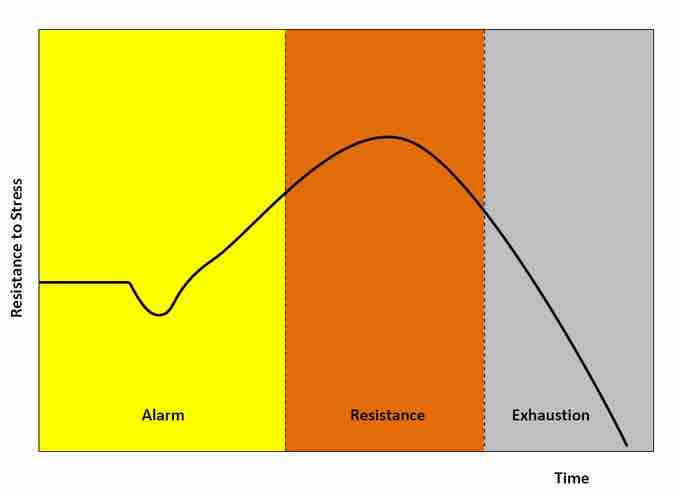Physiologists define stress as how the body reacts to a stressor (a stimulus that causes stress), real or imagined. Acute stressors affect an organism in the short term; chronic stressors over the long term.

GAS
A diagram of the general adaptation syndrome model,
Alarm
Alarm is the first stage. When the threat or stressor is identified or realized, the body's stress response is in a state of alarm. During this stage, adrenaline will be produced in order to bring about the fight-or-flight response. The organism's resistance to the stressor drops temporarily below the normal range and some level of shock may be experienced.
Resistance
Resistance is the second stage. If the stressor persists, it becomes necessary to attempt some means of coping with the stress. Although the body begins to try to adapt to the strains or demands of the environment, the body cannot keep this up indefinitely, so its resources are gradually depleted.
Exhaustion
Exhaustion is the third and final stage in the general adaptation syndrome model. At this point, all of the body's resources are eventually depleted and the body is unable to maintain normal function. The initial autonomic nervous system symptoms may reappear (sweating, raised heart rate, etc.).
If stage three is extended, long-term damage may result, as the body's immune system becomes exhausted, and bodily functions become impaired and result in decompensation. The result can manifest itself in obvious illnesses such as ulcers, depression, diabetes, trouble with the digestive system, or even cardiovascular problems, along with other mental illnesses.